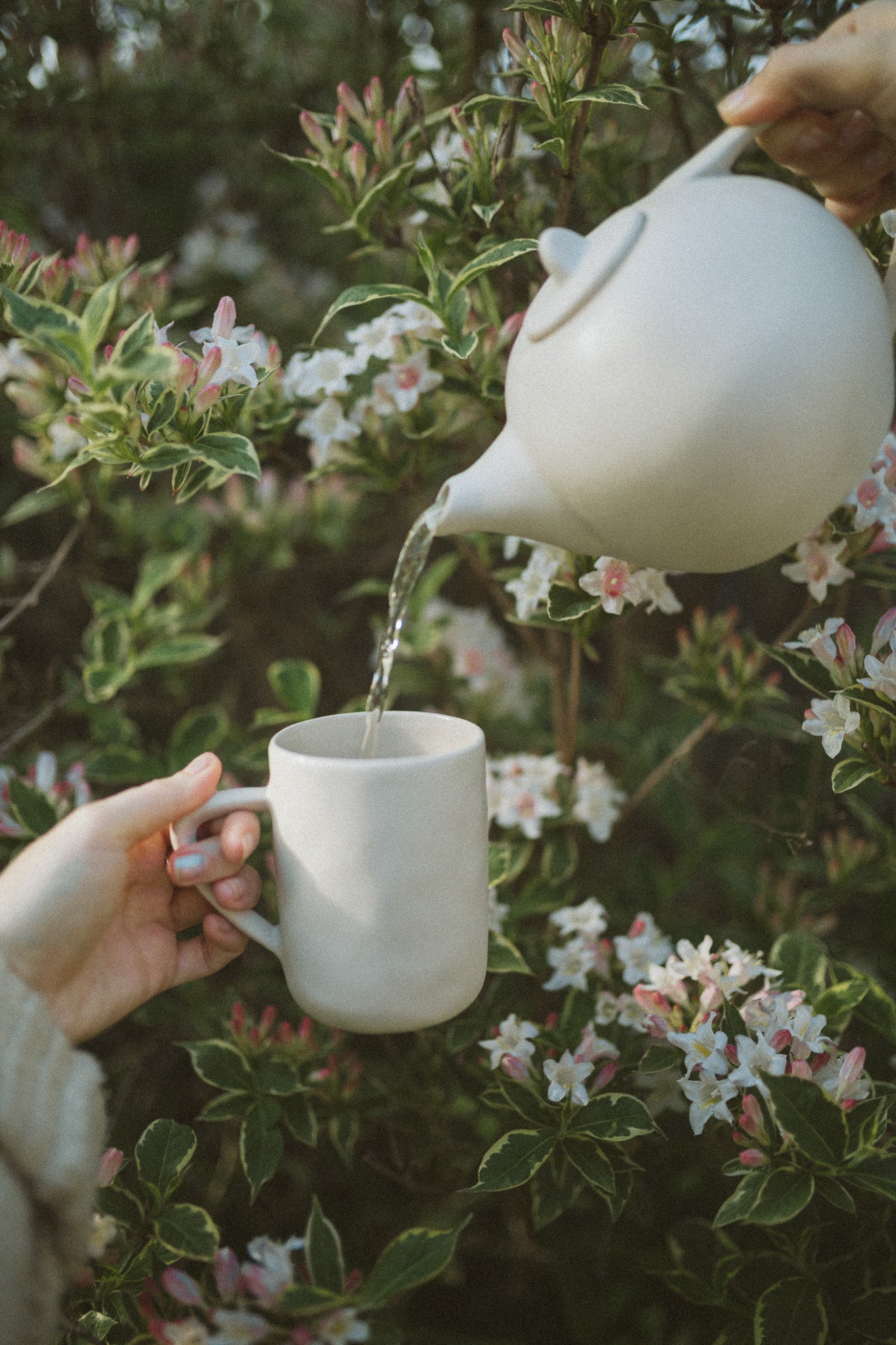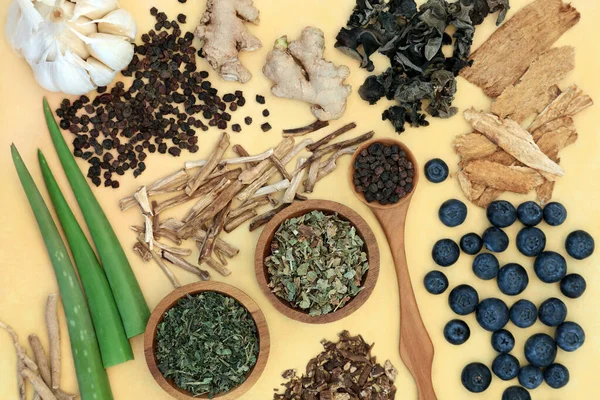Adaptogenic Tea Blends: Stress Relief in Every Sip
Introduction: Finding Calm in a Cup
In today's fast-paced world, stress has become an unwelcome companion for many. While there are various ways to manage stress, one of the most soothing and accessible methods is through the simple act of sipping a cup of tea. But not just any tea – adaptogenic tea blends. These special blends harness the power of adaptogens, natural substances that help the body adapt to stress and maintain balance. Let's dive into the world of adaptogenic teas and discover how they can bring a sense of calm and well-being to your daily life.

What are Adaptogens?
Adaptogens are a unique class of herbs and mushrooms that help the body resist stressors of all kinds, whether physical, chemical, or biological. They work by supporting the adrenal glands, which play a crucial role in the body's stress response. Unlike stimulants that can lead to a crash, adaptogens help to modulate the stress response, promoting a sense of balance and resilience. Some of the most well-known adaptogens include:
- Ashwagandha: Known for its calming and rejuvenating properties. Ashwagandha helps reduce anxiety and improve sleep.
- Rhodiola Rosea: This adaptogen is celebrated for its ability to combat fatigue and enhance mental performance. Rhodiola Rosea is particularly useful during periods of high stress.
- Holy Basil (Tulsi): Revered in Ayurvedic medicine, Holy Basil is known for its stress-relieving and mood-boosting effects. Holy Basil also has antioxidant and anti-inflammatory properties.
- Reishi Mushroom: Often called the "mushroom of immortality," Reishi supports the immune system and promotes relaxation. Reishi Mushroom is a powerful adaptogen for overall well-being.
- Eleuthero (Siberian Ginseng): This adaptogen helps improve mental performance and reduce fatigue. Eleuthero is great for those needing an energy boost without the jitters.
These adaptogens, when combined in tea blends, can offer a synergistic effect, enhancing their individual benefits and providing comprehensive stress relief.

Benefits of Adaptogenic Tea Blends
Incorporating adaptogenic tea blends into your daily routine can offer a wide range of benefits, making it a simple yet effective way to support your overall health and well-being. Here are some key advantages:
- Stress Reduction: Adaptogens help regulate the body's stress response, reducing feelings of anxiety and promoting a sense of calm.
- Improved Sleep: Certain adaptogens, like Ashwagandha and Reishi, can improve sleep quality by calming the nervous system and promoting relaxation.
- Enhanced Energy Levels: Adaptogenic teas can help combat fatigue and increase energy levels without the crash associated with caffeine.
- Boosted Immune System: Adaptogens like Reishi mushroom have immune-modulating properties, helping to strengthen the body's defenses.
- Improved Mental Clarity: Adaptogens like Rhodiola Rosea can enhance cognitive function, improving focus and mental clarity.
By regularly consuming adaptogenic tea blends, you can support your body's natural ability to adapt to stress, leading to improved physical and mental health.

Creating Your Own Adaptogenic Tea Blends
One of the best things about adaptogenic teas is the ability to customize your blends to suit your specific needs and preferences. Here's a simple guide to creating your own adaptogenic tea blends:
- Choose Your Base Tea: Start with a base tea that you enjoy. Green tea, black tea, herbal tea, or even rooibos can work well.
- Select Your Adaptogens: Choose 1-3 adaptogens based on your specific needs. For example, if you're looking to reduce stress and improve sleep, Ashwagandha and Reishi would be a good combination.
- Add Flavor Enhancers: Enhance the flavor of your tea with herbs, spices, and other natural ingredients. Consider adding:
- Lemon Balm: For a calming and citrusy flavor.
- Ginger: For a warming and digestive boost.
- Lavender: For relaxation and floral notes.
- Peppermint: For a refreshing and invigorating taste.
- Experiment with Ratios: Start with small amounts of each ingredient and adjust the ratios to find your perfect blend. A general guideline is to use about 1 teaspoon of adaptogens per cup of tea.
- Brewing Instructions: Follow the brewing instructions for your base tea. In general, steep the tea and adaptogens in hot water for 5-7 minutes.
Here's an example recipe for a calming adaptogenic tea blend:
| Ingredient | Amount | Benefits |
|---|---|---|
| Green Tea | 1 teaspoon | Antioxidant-rich base |
| Ashwagandha Powder | 1/2 teaspoon | Reduces stress and anxiety |
| Reishi Mushroom Powder | 1/2 teaspoon | Supports immune system and relaxation |
| Lavender Buds | 1/4 teaspoon | Promotes relaxation and sleep |
Feel free to adjust this recipe to your liking. The key is to experiment and find what works best for you.

Where to Find Adaptogenic Tea Blends
If you prefer convenience, there are many pre-made adaptogenic tea blends available on the market. Here are some reputable brands and retailers to consider:
- Traditional Medicinals: Offers a variety of herbal teas, including blends with adaptogens like Ashwagandha and Holy Basil.
- Pukka Herbs: Known for their organic and ethically sourced herbal teas, including adaptogenic blends designed for stress relief and relaxation.
- Rishi Tea: Provides high-quality loose leaf teas and herbal blends, including adaptogenic options with Reishi and other beneficial herbs.
- Mountain Rose Herbs: An online retailer offering a wide selection of organic herbs and adaptogens, allowing you to create your own custom tea blends.
- Local Health Food Stores: Check your local health food stores for adaptogenic tea blends and individual adaptogens.
When purchasing adaptogenic tea blends, be sure to look for products that are certified organic and made with high-quality ingredients. Read the labels carefully and choose blends that align with your specific needs and preferences.

Precautions and Considerations
While adaptogenic tea blends are generally safe for most people, it's important to take certain precautions and consider potential interactions. Here are some key points to keep in mind:
- Consult with a Healthcare Professional: If you have any underlying health conditions or are taking medications, consult with a healthcare professional before incorporating adaptogenic tea blends into your routine.
- Start with Small Doses: Begin with small doses to see how your body reacts. Gradually increase the amount as needed.
- Be Mindful of Allergies: Check the ingredient list carefully to ensure you are not allergic to any of the herbs or ingredients in the blend.
- Avoid During Pregnancy and Breastfeeding: Some adaptogens may not be safe during pregnancy and breastfeeding. Consult with your healthcare provider before using adaptogenic tea blends during these times.
- Potential Interactions: Adaptogens can interact with certain medications, such as immunosuppressants and sedatives. Be sure to discuss any potential interactions with your doctor.
By taking these precautions and being mindful of your body's response, you can safely enjoy the benefits of adaptogenic tea blends and incorporate them into your wellness routine.

So go ahead, brew yourself a cup, and let the soothing power of adaptogens guide you towards a calmer, more balanced you.
-Hot Water
Comments
Post a Comment